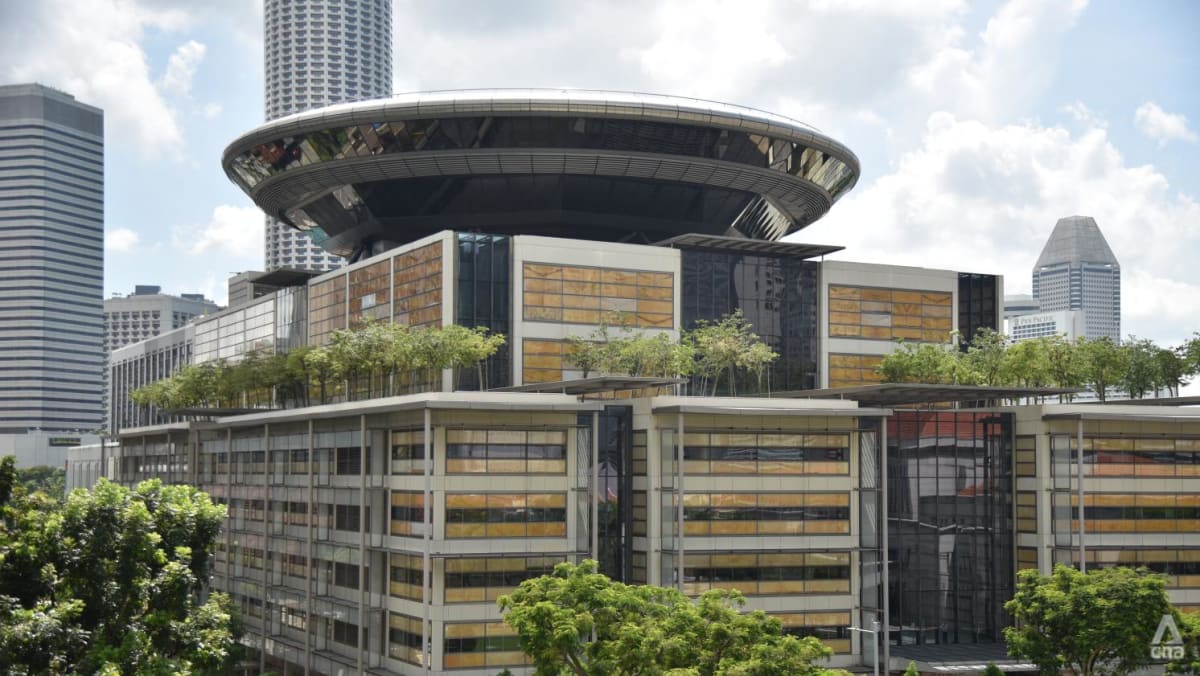
SINGAPORE: A policewoman riding pillion on her husband’s motorcycle suffered severe brain injuries and vision loss in a traffic accident with another motorcyclist in 2016.
Ms Rajina Sharma Rajandran, 39, was awarded S$3.4 million (US$2.5 million) in damages by a court, according to a judgment dated Feb 13.
Her husband, Mr Theyvasigamani Periasamy, was found liable for 75 per cent of the amount, while the other motorcyclist, Mr Jasmani Jaffar, was found liable for the remaining 25 per cent.
A third party who had been involved in a separate collision that happened nearby just before the accident was brought in by Mr Theyvasigamani and agreed to indemnify Mr Theyvasigamani to the extent of 10 per cent of all damages and interest payable to Ms Rajina.
Ms Rajina had launched the negligence lawsuit through Mr Theyvasigamani, who is her litigation representative and caregiver.
The defendants’ respective insurers took conduct of the case.
Although Mr Theyvasigamani is being sued, as his insurer is taking conduct of the case, it is likely that the money will come from the insurer.
According to the judgment, Ms Rajina was riding pillion on her husband’s motorcycle along the Central Expressway towards the Ayer Rajah Expressway on the morning of Nov 2, 2016.
Mr Jasmani, who was riding his motorcycle in front of the couple, suddenly skidded and fell from his bike.
Mr Theyvasigamani braked abruptly to avoid him, but crashed into the rear of Mr Jasmani’s motorcycle.
The impact of the collision flung Ms Rajina off the motorbike, causing very severe injuries.
She was rushed to Tan Tock Seng Hospital, resuscitated and hospitalised for more than four months, undergoing multiple medical procedures during this time.
Her injuries included: A severe traumatic brain injury with permanent impairments of language and cognition and a resulting loss of functional independence, vision loss in both eyes, nerve palsy affecting the face and a chest injury with seven rib fractures.
HER EMPLOYMENT
At the time, Ms Rajina was a senior staff sergeant with the Singapore Police Force. Before this, she worked part-time jobs from the age of 16 before joining SPF three years later.
She rose through the ranks from corporal to sergeant and later senior staff sergeant until 2019, when her service had to be terminated because of the accident.
She earned a number of accolades including the Singapore Police Service Good Service Medal, the Singapore Police Service Long Service and Good Conduct Medal and several Commissioner of Police’s Commendation awards.
Ms Rajina, through her husband, sought S$2.09 million for her loss of future income, inclusive of employer’s Central Provident Fund (CPF) contributions.
This was based on her salary scale of S$3,580 to S$5,490 at the time of the accident, as a senior staff sergeant, as well as various bonuses.
Justice Teh Hwee Hwee awarded her S$1.96 million for loss of future earnings, which makes up the bulk of the total S$3.4 million in damages Ms Rajina was awarded.
Ms Rajina claimed S$705,900 for her future caregiver expenses. Her husband said he wanted to return to work and to hire a caregiver to take over care of his wife.
The judge awarded S$400,848 for future caregiver expenses, taking into account an estimated salary of S$650 per month and other expenses such as levies, insurance and living expenses.
Parties agreed that Ms Rajina was expected to live up to the age of 72 instead of the age of 86, for other females who share her year of birth.
The judge awarded Ms Rajina various other damages for different heads of claim, including S$296,375 for the loss of retirement benefits under the SPF INVEST Scheme, and S$300,291.34 for Ms Rajina’s pre-trial loss of earnings.
She noted that Ms Rajina’s husband has been devoted to caring for her.
CLAIM FOR HUSBAND’S LOST EARNINGS
Ms Rajina had also made a claim for her husband’s pre-trial loss of earnings, as he stopped working to care for her.
He was earning a gross monthly salary of S$3,640 before the accident, before taking no pay leave for about four months to care for his wife.
He later resigned in August 2017 to tend to his wife full-time.
Counsel for Mr Theyvasigamani said this claim for Mr Theyvasigamani’s pre-trial loss of earnings should not be allowed, because he was both the caregiver and the tortfeasor – meaning a person who has committed a civil offence that injures another party.
The lawyers said Mr Theyvasigamani had already compensated his wife by providing gratuitous care.
If he were ordered to pay damages to his wife for this claim, he would be paying double compensation, argued the lawyers.
Justice Teh rejected this argument.
“In my judgment, where services are volunteered to another family member in need out of affection, devotion or a sense of duty by a family member who is also the tortfeasor, the situation should be treated in the same manner as where gratuitous services are provided by third parties out of sympathy or the goodness of their hearts,” said the judge.
She said there is “also no circularity of payment because damages are awarded to compensate the plaintiff for the plaintiff’s loss and to meet the plaintiff’s needs, and not to compensate the tortfeasor-family member”.
“A tortfeasor-family member who is acting out of affection, devotion or duty when caring for the plaintiff does so with no expectation of getting paid by the plaintiff to begin with,” said Justice Teh.
She awarded S$93,080 for Ms Rajina’s claim for her husband’s pre-trial loss of earnings.

